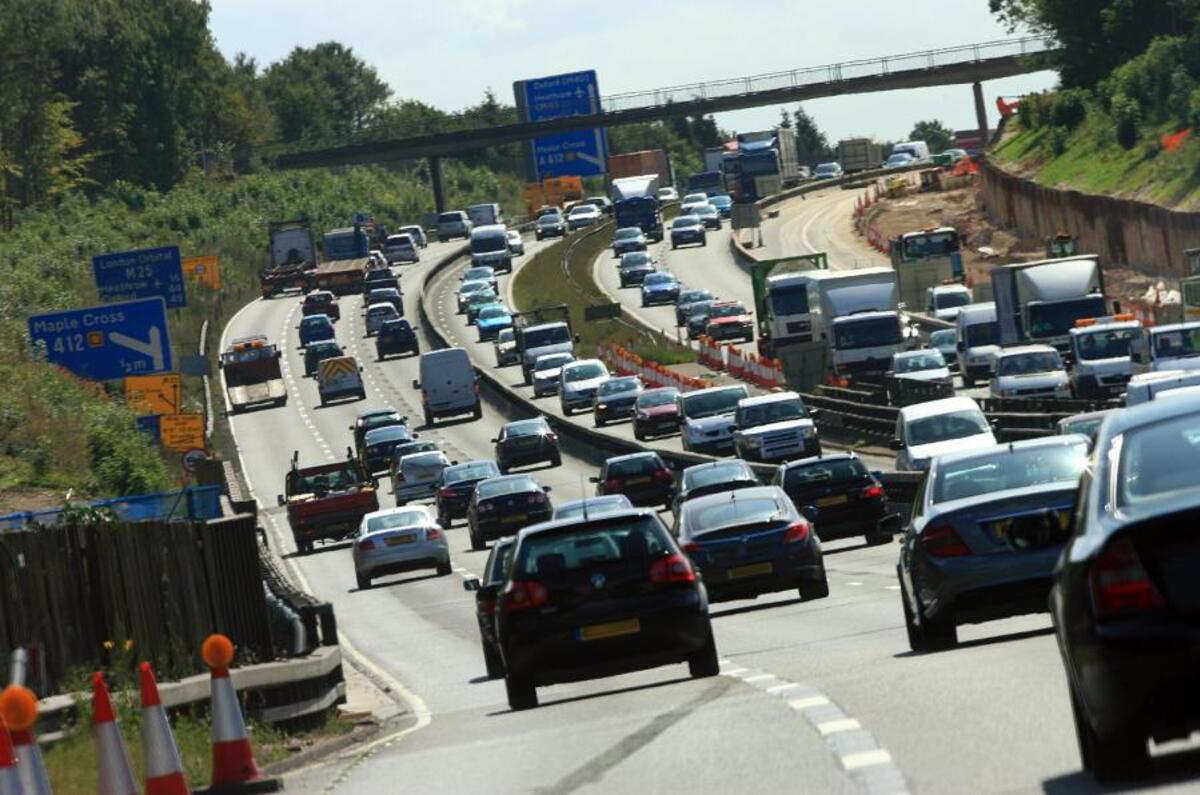Sections of the UK’s motorway network could be covered by canopies incorporating pollution-absorbing materials as part of new air quality improvement measures.
The Highways Agency, which is responsible for Britain’s motorways, has revealed that it is considering using a tunnel-like structure to prevent road traffic emissions from spreading.
In its latest strategy report, it said tests on an air quality barrier fitted to a 100-metre section of the M62 in the north of England had shown positive results. Installed in 2015, its height was increased from four to six metres high in 2016 and incorporates a new polymer material that can absorb tailpipe emissions.
Hybrid exempt from Britain's petrol and diesel car ban
The Highways Agency has previously trialled this coating, which 'eats' nitrogen oxides (NOx), as part of ongoing research into reducing the level of vehicle emissions that escape road sections.
The studies come as part of 10 wider investigations planned to take place between 2015 and 2018. They also include techniques to reduce traffic, boost the uptake of electric vans and modernise the UK’s heavy goods vehicle (HGV) fleet, as well as growing the number of charging stations along routes.
Transport pollution accounts for about 25% of the UK’s greenhouse gas emissions output. The increase in the number of diesel vehicles in recent years has also increased NOx output, which some experts have linked to a rise in the number of premature deaths associated with poor air quality to 40,000 per year.
More content:






Join the debate
Add your comment
Waste of money
It would be better if cars were fitted with technology that stores air pollution as it is created by the engine.
The stored air pollution would be unloaded at petrol stations, car parks and supermarkets so it can be transported by gas pipes to a pollution waste processing plant.
It is possible to condensate
It is possible to condensate the gases (to a liquid), but requires a hefty bit of kit comprising of pressure and temp. In other words, it's expensive, so not feasible. It's simply much easier to electrify the car. That way, you can deal with the gases at the source of power generation.
M62 walls
I thought they put up just have somewhere to store the vehicles being used to install the smart motorway. Didn't realise it was an experiment!
Marv wrote:
the only way to edit my poor typing :-(
Government ban
The Government announce a ban on non electric/hybrid vehicles sales from 2040.
In other news Britsh gas announce a 12% rise in the cost of its electricty and blame it on Government policy.
I wonder how many current Government ministers will be working as advisors to the energy sector in the near future..